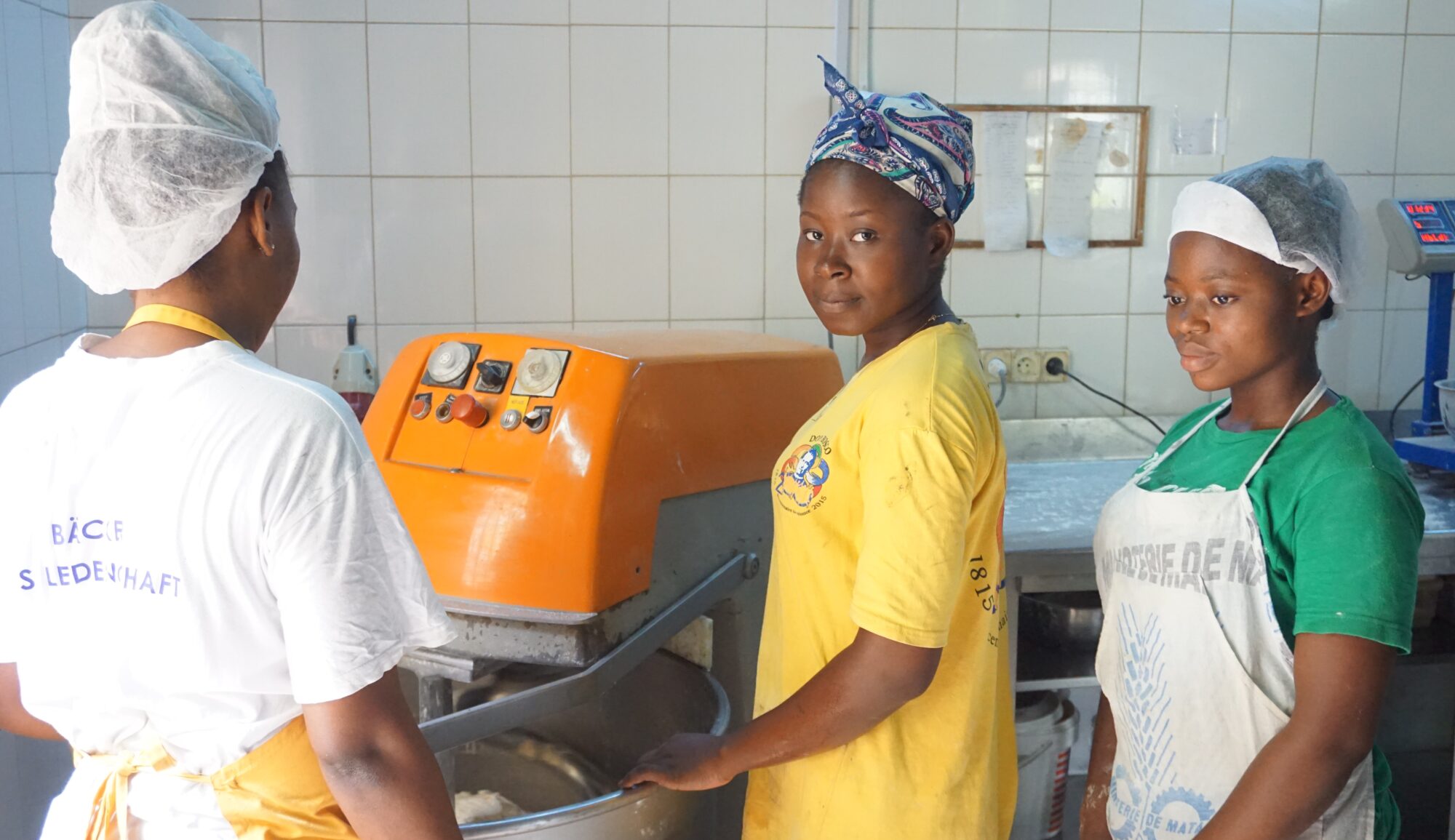In both rural and urban areas, the Democratic Republic of Congo has been facing mass unemployment for over 30 years. The local labour market is systemically choking, unable to absorb the millions more jobseekers who come knocking on its door every year. According to some sources, more than a third of young people in the DRC are unemployed, if not half. This is a veritable social bomb.
For several years now, VIA Don Bosco has been providing training in self-entrepreneurship to help young people in rural areas find work. As of 2023, this specific scheme will be duplicated in the Kinshasa centres.
An atrophied labour market
Analyses by VIA Don Bosco’s employment offices show that there are basically two labour markets in the DRC, linked to very different contexts. On the one hand, there is the rural labour market, with little or no structure, and on the other hand, there is the urban labour market, which is more oriented towards salaried employment. In both cases, opportunities are rare.
“To make up for the lack of businesses in rural areas, the Don Bosco centre in Mbuji-Mayi is offering young people the chance to take a self-entrepreneurship course once they have obtained their diploma. Our aim is to facilitate the creation of small production units, particularly in agriculture and sewing. We’ve been running this programme for several years now and it is working very well,” explained Elisa Lorenzoni, project coach at VIA Don Bosco. “What’s new is the strong demand that we’re seeing for these self-entrepreneurial skills in the big cities too. This sector offers new opportunities for financial independence for young people in urban areas. It is certainly a credible solution to unemployment, rural exodus and migration.” This local observation has also been made by VIA Don Bosco in the other African countries where it is active.
Entrepreneurial values in educational curricula
VIA Don Bosco has therefore decided to replicate in Kinshasa the model set up with its partners in rural areas. “The first stage will be to train the teachers concerned in Kinshasa so that they can analyse the students’ business plans and check the feasibility of their projects.” At the same time, the young people will be monitored by a local coach and will take part in a self-entrepreneurship club where they can learn from the experiences – both good and bad – of others. “In terms of teaching, the students will need to acquire a thorough grounding in business management and accountancy, so that they can draw up a sound budget, manage their investments and deal with customers. We want to give them as many keys and tools as possible.”
Self-financing, the key to success
While self-entrepreneurship raises a lot of hopes among young people, the adventure that awaits them is not a smooth path. It will require rigour, self-sacrifice and total personal commitment. The first obstacle is finance. “To avoid setbacks, we have decided to ask the young people themselves to find the initial investment. This is a way for us to test their motivation and their ability to find solutions. Candidates will also receive specific support in this area.”
Once set up, each self-employed business will be monitored by the VIA Don Bosco employment office for a minimum of 6 months. Are we really moving towards consolidation of the business and the structure? After a year, the overall progress of the business will be assessed. If the business is on the right track, the young entrepreneur will be able to take off: on their own.
